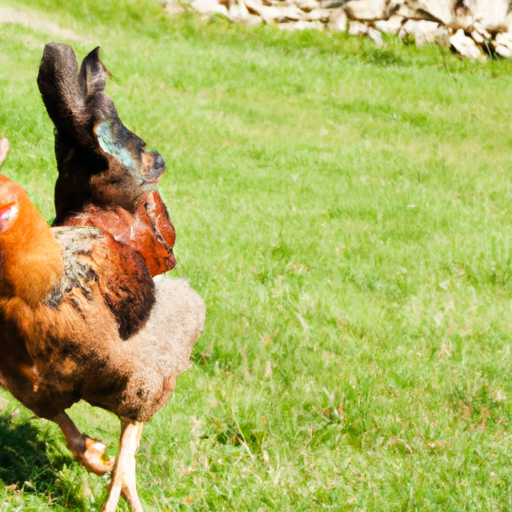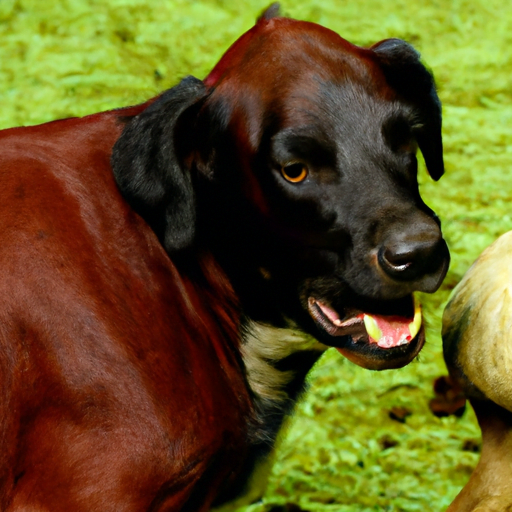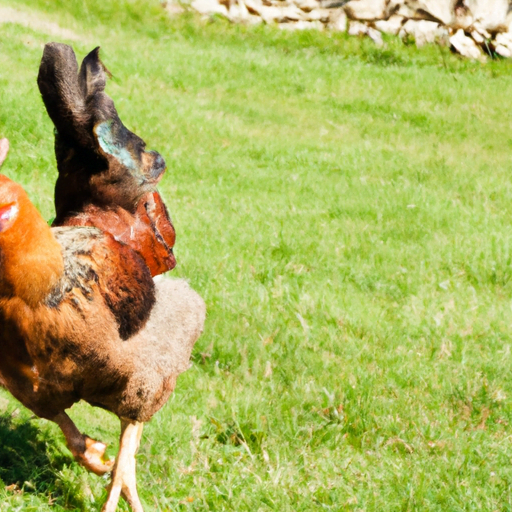Have you ever wondered what the most self-sufficient farm animal is? When it comes to off grid living, choosing the right animals for your farm is crucial. You want animals that can largely take care of themselves and provide you with the necessities. In this ultimate guide, we’ll delve into the topic and help you make an informed decision.
When it comes to self-sufficiency, there are a few factors to consider. First, you want animals that can forage for their own food, reducing your reliance on expensive commercial feed. Second, you want animals that can reproduce easily, ensuring a constant supply of fresh meat, eggs, or milk. Lastly, you want animals that require minimal attention and care, allowing you to focus on other aspects of your off-grid lifestyle.
From chickens and ducks to rabbits and goats, there are several options to choose from. Each animal has its own unique characteristics and benefits, and we’ll explore them all in detail in this guide. By the end, you’ll have a clearer understanding of which farm animal is the most self-sufficient and best suited for your off-grid living adventure. Stay tuned to learn more about these incredible creatures and how they can contribute to your self-sufficient farm!

The Ultimate Guide: Choosing the Most Self-Sufficient Farm Animal
Are you considering starting your own self-sufficient farm? Congratulations! Embracing a self-sufficient lifestyle can bring numerous benefits, including reduced dependence on external resources, decreased costs and maintenance, and increased food security. However, one of the most critical decisions you’ll face is choosing the right farm animals to raise. But fear not, for we have created the ultimate guide to help you make the best choice for your individual needs and resources.
Factors to Consider
Before delving into specific farm animals, it’s important to consider a few key factors that will influence your decision. The climate and environment of your location play a crucial role in determining the suitability of certain animals. Some animals thrive in cold climates, while others prefer a warmer setting. Additionally, the available space on your farm will dictate the number of animals you can comfortably raise. Lastly, take into account your personal preferences and abilities. If you have a particular affinity for a certain animal or possess specific skills in animal care, that may guide your decision-making process.
Goats: Adaptable and Resilient
Goats are renowned for their adaptability and resilience, making them an excellent choice for self-sufficient farming. They can thrive in various climates and withstand harsh conditions, making them suitable for a range of environments. Goats also require minimal maintenance compared to other farm animals, making them ideal for those who prefer a low-maintenance approach. Aside from their milk and meat, goats have diverse uses, such as brush and weed control, making them a valuable asset on any farm.
Chickens: Efficient Egg Production
Chickens are often considered the quintessential farm animal for self-sufficiency. Not only do they provide eggs on a regular basis, but they also consume a wide variety of feed, reducing costs and waste. Additionally, chickens are natural pest control agents, preying on insects and other small pests that can harm crops. Their shelter requirements are relatively simple, making them an accessible choice for beginners in self-sufficient farming.
Rabbits: Rapid Reproduction
If you’re looking for a farm animal with a high reproductive rate, look no further than rabbits. These fluffy creatures reproduce quickly, allowing for a sustainable source of meat. Rabbit meat is also high in protein and low in fat, making it a healthy choice for those who prioritize nutrition. Another advantage of raising rabbits is their low feed consumption. They can be fed a variety of forages and vegetables, making them an economical option.
Pigs: Effective Waste Management
Pigs offer several benefits to self-sufficient farmers. One of their standout qualities is their effective waste management capabilities. Pigs can consume food scraps and agricultural byproducts that would otherwise go to waste, turning them into valuable meat. Pigs also have a high yield of meat, which can provide an abundant food source for your farm. With proper pasture rotation, pigs can also utilize pasture resources, further enhancing their self-sufficiency.
Ducks: Excellent Egg Layers
If you’re looking for an alternative to chickens for egg production, ducks are an excellent choice. They are prolific layers and can produce a significant number of eggs throughout the year. Ducks also excel at weed and pest control, particularly in wet areas where they can forage for insects, snails, and other pests. In terms of maintenance costs, ducks are relatively low, making them a practical option for self-sufficient farmers.
Sheep: Drought Tolerant
Sheep are tough and resilient animals, particularly suitable for drought-prone regions. They have the ability to graze on a variety of grasses and plants, making them efficient grazers. If you’re interested in fiber production, sheep provide a versatile option. Their wool can be used for various purposes, such as clothing and textiles. Additionally, sheep require minimal assistance during lambing, making them relatively low-maintenance compared to other livestock.
Conclusion
Choosing the most self-sufficient farm animal will ultimately depend on your individual needs and resources. It’s crucial to evaluate each animal’s characteristics and requirements, taking into account factors such as climate, available space, and personal preferences. By considering these factors and the specific advantages of each animal, you can make an informed decision that will set you on the path to a successful self-sufficient farm. So, go ahead and embark on this exciting journey towards a more independent and sustainable lifestyle. Good luck!





